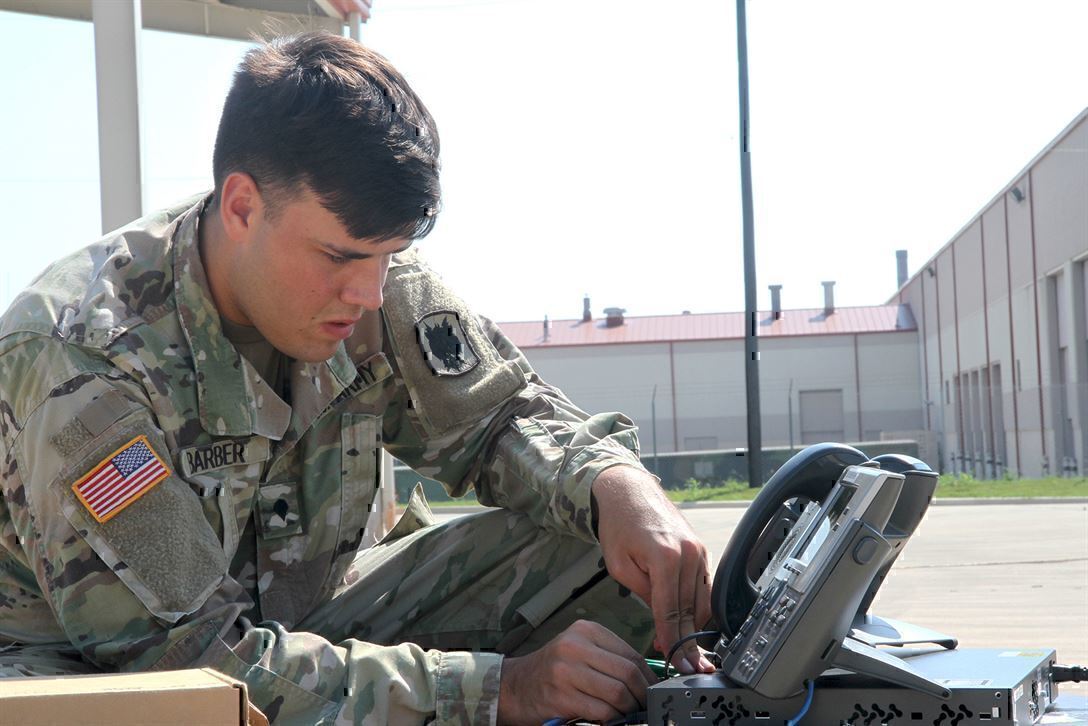A common part of the hiring process is a phone interview, which usually comes after resume submission but before an invitation to meet with a hiring representative.
The purpose of phone interviews is to further screen the qualified applicants – the ones whose applications, cover letters or resumes stood out – usually with a goal of getting down to a certain number for regular interviews.
Also, if you’re applying to a job at your home area while still in the military (and therefore stationed somewhere else) companies may conduct a phone interview in lieu of a face-to-face. This is especially common in industries that seek veterans, such as federal agencies or law enforcement.
It’s easier to make a good impression face to face than it is over the phone. So remember these seven things to master the phone interview:
1. Don’t act entitled.
This goes without saying, of course, but between rumors that companies are desperate for veteran hires and the veteran’s natural pride in service, former military applicants often imply they are intrinsically more qualified for a job than any civilian could be. Sometimes this is talking about combat experience, or reminiscing about feelings of brotherhood, or implying that anything civilian-related is easier than what happened in the military.
Remember that you’re not being interviewed for your stories. Also, while your military experience might be impressive, it doesn’t guarantee that you’ll do well in the civilian world. Let your past speak for itself, when the interviewer comes around to it. In the meantime, focus on what you can offer the company.
2. Don’t monopolize the conversation.
The point of the phone interview may be to find out about you and your qualifications, but if you ramble or talk constantly (maybe in an effort to list every single experience or qualification you have) then your interviewer will have a hard time getting the information he/she needs and will probably lose interest.
You have a limited amount of time on the phone, so leave the interviewer room in the conversation to ask questions and explain things, especially questions that spring naturally out of dialogue. Those questions may not be related to hard qualifications, but will certainly delve into the intangibles of your character, which is where veteran candidates usually excel.
Besides, if you are considerate over the phone, you will come off as more likeable – which certainly helps make a good impression.
READ NEXT: FORT DRUM TAP LEADER’S ADVICE FOR VETERANS
3. Don’t speak in military lingo.
Just as you “demilitarize” your resume by removing acronyms and trying to find “plain-English” ways to explain your past jobs, make sure you speak in concise, plain English when you are talking about yourself.
As a technique, rehearse your explanations of job responsibilities so you can deliver them clearly, plainly, and in few words. This will present you as accessible and a good communicator, and will keep you from talking too much.
4. Refer to the job posting.
Job postings provide detail about what the hiring company considers ideal in a candidate. You should absolutely make sure the experience you talk about matches the “experience required” section of the posting (also something you can rehearse), but you should additionally bring up the job requirements in your interview.
A phrase like, “I noticed you’re looking for a candidate with mechanical experience. Although I don’t have direct mechanical training, I performed the PMs – preventative maintenance – on all the vehicles in our unit” will immediately perk an interviewer’s interest, because it shows you researched the job, that you’re genuinely interested and that you put some thought into whether you’d like the job and/or do it well. Further, even if you don’t meet ALL the interviewer’s requirements, he/she still has a reason to list you as qualified.
5. Be professional.
This covers a lot of things. First, a phone interview will likely be set up via email or a phone call.
So have a professional email address (e.g. first-initial-last-name or firstname-dot-lastname at website) and a professional voicemail greeting (“You’ve reached XYZ. I’m not available, but leave a message and I’ll return your call”) to nail that first impression.
An email like “usmcbadboy19” or a voicemail greeting like “Yo! I’ll hit you later!” will make the interviewer laugh at your expense … and may make them pass for someone who seems more mature.
6. Protect your public image.
Any interviewer worth his/her salt will mine social media for information on you. Scandalous, crude or aggressively political postings, especially photographs, will make you look immature and unprofessional, and will make your interviewer wonder whether you’d be a liability to the company.
The easiest way to protect yourself online is to jack up your privacy settings so that nobody can see you, but it doesn’t help you get hired. You can use your private page as a “social resume” by removing the questionable stuff and letting the page display deployment pictures, family pictures and interests.
Those things will help the interviewer feel like he/she knows you better and put a face to the voice on the phone, both of which will make you an easier choice because you seem familiar.
7. Be on time.
And make sure you contact your interviewer, if necessary, via phone or email. Don’t text unless they text you first. And if they miss their call, be tactful when reminding them.
The phone interview may be just a stage in the hiring process, or it may be your only interview for a position. Either way, you want to make sure you present yourself as qualified, articulate and friendly. That way an interviewer will feel like you meet his/her checklist effortlessly, and pass you along.
READ NEXT: NEW MILITARY RETIREMENT SYSTEM TO TAKE EFFECT










